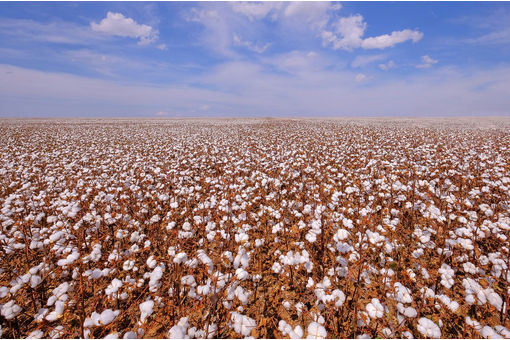Interviews
China to put a strain on global cotton supply
19 Apr '08
4 min read
World demand for imported cotton will jump by as much as 50 percent in the next decade as China's emerging middle class snaps up ever more of the fluffy fiber, Texas Tech University economists predict. Yet India is poised to profit most from this windfall instead of U.S. farmers.
Economists say China is poised for a consumer products revolution, which will put a strain on global supply. The country produces, imports and mills more cotton than any other place on the globe, yet residents use relatively few cotton products - about 4.4 pounds annually - compared to the 35 pounds demanded in highly developed countries like the U.S. That leaves plenty of room for growth inside China's untapped consumer frontier.
Add to that the fact that China already uses most of its arable land and produces a 1.7-bales-per-acre yield comparable to the U.S., and China will have to look elsewhere for its textiles.
Today, China imports 14.4 million bales. In ten years that number is expected to rise to 28.7 million bales. Unfortunately, it's not likely that the United States will fill this production dearth.
Competition from other crops, specifically those related to rising bio-fuel production, will push the U.S. cotton acreage downward at least for a few years while at the same time India can enjoy massive boosts to its yields as it turns to genetically enhanced crops.
"There's no doubt that U.S. cotton area will go down," said Samarendu Mohanty, an agricultural economist and associate director of the institute. "It could go up if prices for these other crops like corn and soybeans drop drastically, but we don't expect that."
The work, led by researchers with Texas Tech's Cotton Economics Research Institute, is described in the recent release of the group's annual world cotton outlook.
The research results are based on the Texas Tech World Fiber Model, a long-term series of baseline projections that are based on assumptions of normal weather patterns and current trade policies, along with stable economic fundamentals such as population and income growth, and prices for crops that would compete with cotton.
Economists say China is poised for a consumer products revolution, which will put a strain on global supply. The country produces, imports and mills more cotton than any other place on the globe, yet residents use relatively few cotton products - about 4.4 pounds annually - compared to the 35 pounds demanded in highly developed countries like the U.S. That leaves plenty of room for growth inside China's untapped consumer frontier.
Add to that the fact that China already uses most of its arable land and produces a 1.7-bales-per-acre yield comparable to the U.S., and China will have to look elsewhere for its textiles.
Today, China imports 14.4 million bales. In ten years that number is expected to rise to 28.7 million bales. Unfortunately, it's not likely that the United States will fill this production dearth.
Competition from other crops, specifically those related to rising bio-fuel production, will push the U.S. cotton acreage downward at least for a few years while at the same time India can enjoy massive boosts to its yields as it turns to genetically enhanced crops.
"There's no doubt that U.S. cotton area will go down," said Samarendu Mohanty, an agricultural economist and associate director of the institute. "It could go up if prices for these other crops like corn and soybeans drop drastically, but we don't expect that."
The work, led by researchers with Texas Tech's Cotton Economics Research Institute, is described in the recent release of the group's annual world cotton outlook.
The research results are based on the Texas Tech World Fiber Model, a long-term series of baseline projections that are based on assumptions of normal weather patterns and current trade policies, along with stable economic fundamentals such as population and income growth, and prices for crops that would compete with cotton.
Popular News
































-Ltd..jpg?tr=w-120,h-60,c-at_max,cm-pad_resize,bg-ffffff)





.jpg?tr=w-120,h-60,c-at_max,cm-pad_resize,bg-ffffff)
.jpg?tr=w-120,h-60,c-at_max,cm-pad_resize,bg-ffffff)






